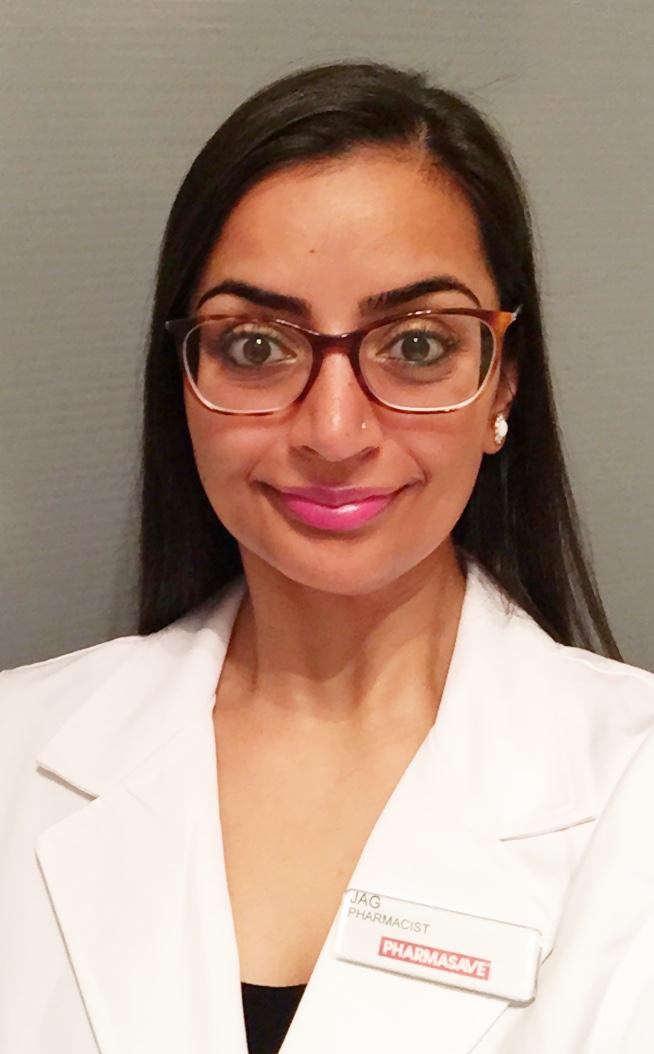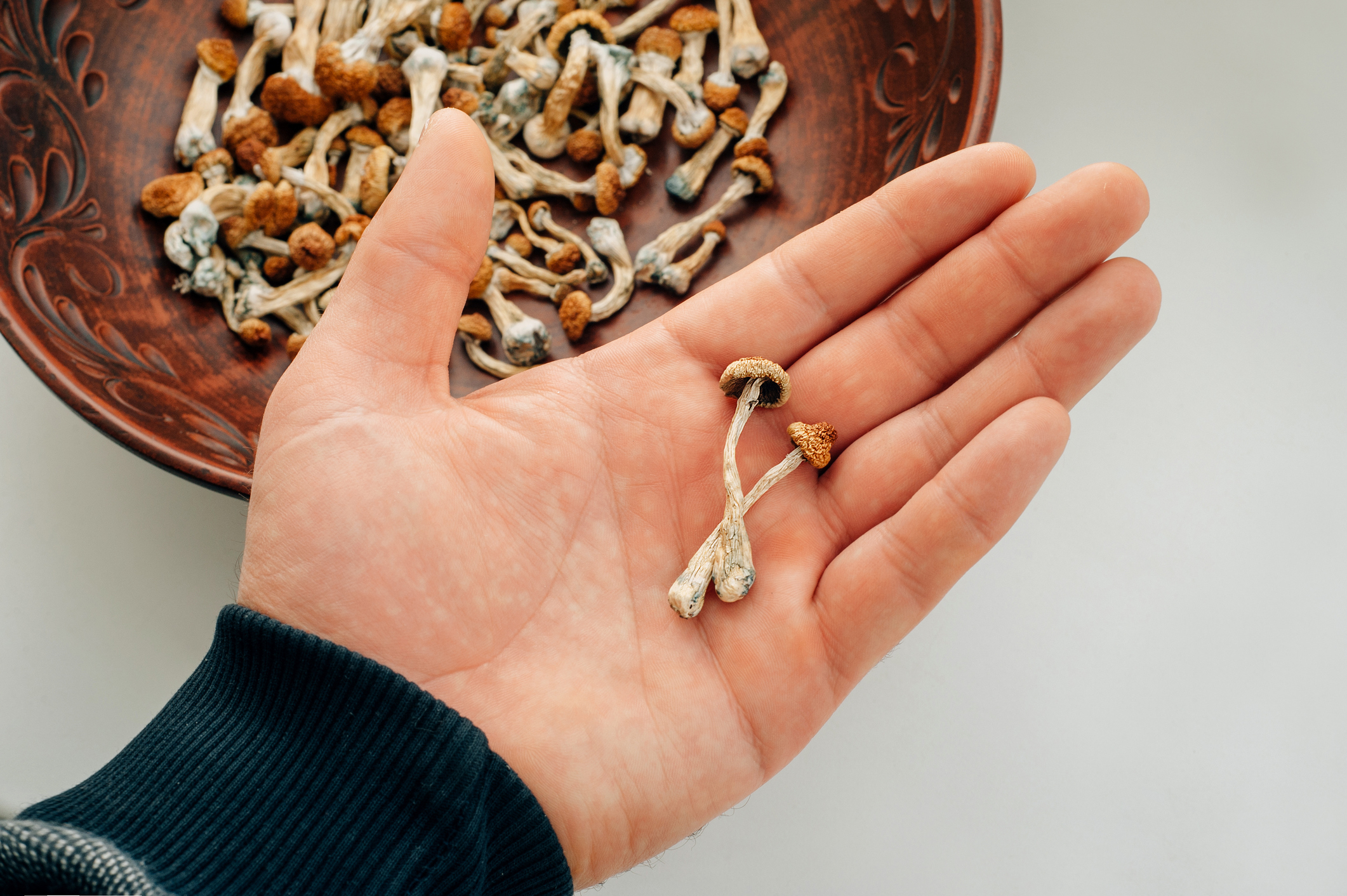Jagpaul Deol is Founder of Atma Apothecare and the Psychedelic Sikh Society, and serves as pharmacist consultant to various organizations, including TheraPsil, SABI Mind, Qi Integrated Health, EntheoMed, Upstream Health, Centre for Medicine Assisted Therapy, Healing Recovery Centre, and Alchemystic Healing. She also works as a community pharmacist at Davie Pharmacy.

Can you tell us about your journey in pharmacy?
I graduated from the University of British Columbia’s Faculty of Pharmaceutical Sciences in 2007, and my journey in pharmacy began during my undergraduate studies. In my first semester, I got involved with a multidisciplinary, student-run medical clinic in Vancouver’s Downtown Eastside. This clinic was newly established and provided essential after-hours services to the community. When I was a first-year pharmacy student, I took on a leadership position with the clinic’s board of directors, which brought together students from various health-care faculties.
Working at the clinic opened my eyes to the unique health-care needs of the community. Throughout my pharmacy education, I spent considerable time at Insite, North America’s first safe injection site, where I gained exposure to substance use and realized how individualized these experiences can be. I learned that many people use substances for various reasons, often related to a lack of social or family support or financial hardship. This experience significantly shifted my perspective on substance use and its complexities. Many clients had co-occurring mental health concerns, alongside chronic conditions such as HIV, and this led me to pursue additional training in psychiatry and infectious diseases.
I have worked within community pharmacy practice as a Shoppers Drug Mart Associate Owner of two Vancouver locations; I have owned, directed and managed several independent and banner pharmacies, and worked as a staff and locum pharmacist throughout B.C. and Ontario. I’ve expanded into niche retail avenues over the years as a former Director of Specialty Pharmacy Services and dermatology consultant at cosmetic retailers such as Holt Renfrew and Murale, and a travel health consultant for community pharmacies in B.C. I now primarily provide direct patient care and psychedelic consults through medical clinics such as Upstream Health, Centre for Medicine Assisted Therapy, Alchemystic Healing, Healing Recovery Centre, and clinical pharmacy services primarily through Davie Pharmacy.
Recently, I have served as an Assistant Professor at UBC and currently guest lecture at universities in Canada and the U.S. I have served on advisory councils and boards for psychedelic therapy related organizations such as TheraPsil, PsyCan, Numinus, Multidisciplinary Association for Psychedelic Studies (MAPS), and sit on the College of Pharmacists of British Columbia’s Ethics Committee. My research roles include trial investigator and study pharmacist for clinical trials using psilocybin and MDMA for psychiatric indications sponsored through agencies such as Vancouver Island Health Authority, TheraPsil, and MAPS.
How has your experience shaped your approach to care?
These experiences have given me invaluable insight into the barriers faced by individuals living with HIV, mental health challenges, and addictions. I’ve learned the importance of meeting patients where they are, both physically and emotionally, and the value of harm reduction, reducing stigma, and providing compassionate care. Building trust is just as critical as offering clinical advice, and I approach each patient as a whole person, not just through their illness. Working in resource-limited settings deepened my commitment to addressing health-care inequities and ensuring access to care for vulnerable populations. These experiences also strengthened my resilience, adaptability, and cultural humility.
Could you elaborate on your current roles?
As an American Academy of HIV Medicine accredited HIV pharmacist, I focus on optimizing health outcomes for clients on antiretroviral therapy (ART) by addressing long-term health implications of living with HIV and age-related complications. This includes addressing the increased risk of complications like osteoporosis, renal disease and cardiovascular concerns due to ART and viremia. These are areas where community pharmacists can make a direct impact on the health outcomes of people living with HIV. Additionally, I work to reduce stigma surrounding HIV prevention and treatment, particularly within South Asian communities. Through community campaigns to increase awareness of pre-exposure prophylaxis (PrEP), I hope to position pharmacists as accessible community sexual health experts — especially as pharmacist prescribing expands. In addition to my clinical work, I educate and train pharmacists, NPs, and MDs on PrEP and HIV aging management.
Over the past decade, my work in mental health and addictions has primarily focused on studying and implementing emerging treatment paradigms, including psychedelic-assisted therapy with ketamine, psilocybin, and MDMA. I consult for Canadian clinics offering ketamine-assisted therapy for psychiatric conditions such as EntheoMed, Qi Integrated Health, Empower Health, SABI Mind. My role often involves assessing and optimizing patients’ psychiatric medications in collaboration with their health-care providers and creating individualized ketamine dosing protocols.
For the past six years, I have served as TheraPsil’s consultant pharmacist for Canadian physicians and nurse practitioners applying for psilocybin and MDMA therapy through Section 56 exemptions and the Special Access Program (SAP). In this capacity, I provide clinical consultations, support community and hospital based health-care teams, participate in judicial reviews as a qualified expert, develop accredited training programs for clinicians, and advocate for policy improvements. Recently, my advocacy efforts contributed to a Federal Court ruling granting SAP access to psilocybin for cluster headaches. Currently, I am a co-investigator on multiple clinical trials examining psilocybin and MDMA and have published research related to both medical cannabis and psychedelics.
Have you engaged with policymakers and stakeholders on the topic of harm reduction?
Yes. I’ve approached advocacy from multiple angles. I’ve worked with non-profits to engage policymakers through meetings and written correspondence. I’ve served on participated in drug regulation and policy committees, collaborating with policymakers, lawyers, medical professionals, and community advocates to develop communication campaigns and maintain dialogue with local MLAs and MPs. Additionally, I sit on advisory boards for policy-focused psychedelic organizations. As a medical-legal expert on TheraPsil’s pro bono legal team, I assess clients’ medical needs, evaluate drug therapy risks and benefits, and provide affidavits to support court challenges — particularly against Health Canada’s denials of SAP requests for psilocybin and MDMA. These legal wins help pave the way for eventual policy change.

For the past decade, Deol’s work in mental health and addictions has focused on studying and implementing emerging treatment paradigms, including psychedelic-assisted therapy with ketamine, psilocybin, and MDMA.
What changes do you believe are necessary to ensure equal access to psychedelics?
As practitioners in psychedelic-assisted therapy, we must recognize that many of these substances are deeply rooted in the healing practices of global Indigenous populations. For example, ayahuasca is sacred to certain communities, and peyote holds significant cultural importance to Indigenous groups in the U.S.
As professionals working within a medical therapeutic model, it’s crucial that we acknowledge and respect these traditional uses, incorporating them into our dialogues around advocacy. We need to ensure that access to psychedelics is not restricted solely to a medical framework but also considers Indigenous and cultural use. This approach helps preserve the integrity of these traditions and ensures that policies remain inclusive and respectful of their origins.
How do you envision the role of pharmacists evolving in the field of psychedelic-assisted therapy?
Pharmacists’ roles in psychedelics will likely remain niche for now, as not every pharmacist will be involved in psychedelic-assisted therapy.
However, like the shift we saw with cannabis, I believe this field will continue to open up. Already, more patients are comfortable disclosing their use of psychedelics, especially microdosing. Substance use, when kept hidden, increases risks, stigma, and shame. I’ve seen firsthand the benefits when people feel safe to talk about these things openly, knowing they’ll be understood rather than judged.
Public perception is shifting, as shown by a 2023 survey from the UC Berkeley Center for the Science of Psychedelics, where 61 per cent of American registered voters support the legalization of psychedelic therapy, and 78 per cent favor easier access for researchers to study psychedelics. Nearly half (49 per cent) support removing criminal penalties for personal use and possession, indicating growing public openness towards therapeutic and scientific uses of psychedelics.
Data also shows that 63.6 per cent of participants in a 2021 Frontiers in Psychiatry report used psychedelic mushrooms for mental health or general well-being. Microdosing interest has surged, particularly in areas with relaxed drug policies, with a 2023 study from UC San Diego revealing a 13-fold increase in related searches since 2015. Additionally, a 2023 poll by TheraPsil found that 80 per cent of Canadians support or are ambivalent about the legalization of psilocybin for medical use, especially for conditions like terminal illness, depression, anxiety, PTSD, and chronic pain.
Personally, I hope the approach to psychedelics within pharmacy practice is more empathetic than the early days of cannabis. I remember when pharmacists were explicitly told not to discuss cannabis use with patients, which only reinforced stigma. Later, we became some of the most accessible and knowledgeable professionals on the topic. That shift brought a steep learning curve, and I envision that we’ll be better prepared to discuss psychedelics with patients from the start, understanding the drugs, potential interactions, and concerns related to psychiatric conditions.
People are going to use these substances whether or not we talk about them, so it’s essential that we create safe, informed spaces for those conversations.
